“Razzennest” is an utterly original auditory experiment that works as sharp satire, hilarious meta-commentary, and absolute nightmare fuel.
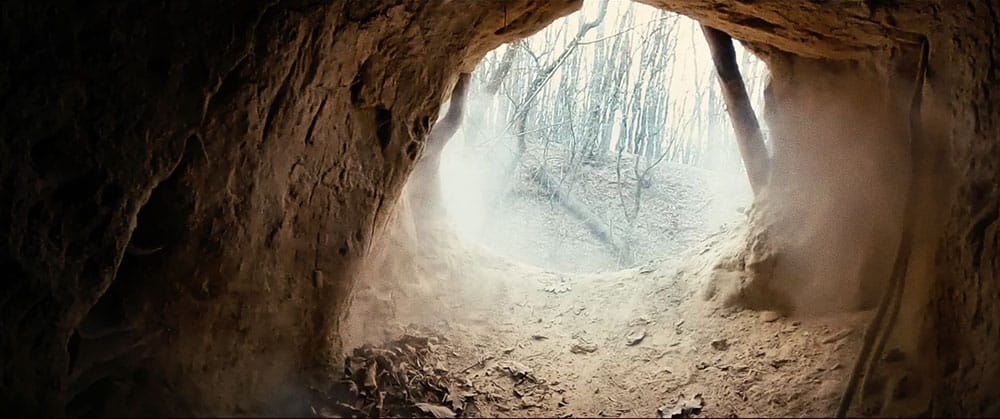
When I attended my favorite annual film fest, Austin’s Fantastic Fest, in 2022, many of the attendees were buzzing about the experimental horror film from writer-director Johannes Grenzfurthner, who made a splash and caused a stir on the 2021 festival circuit with his divisive film Masking Threshold — another bizarre, experimental film that was either brilliant in its insanity or entirely off-putting, depending on your perspective.
Razzennest appeared in Fantastic Fest’s infamous “Burnt Ends” category, a breeding ground for the weirdest, most polarizing, unconventional, and often transcendent cinema. These are the films you watch, knowing full well you may have your mind blown, or at least scrambled, or you may just leave shaking your head in dismay and even disgust.
Those are my favorite kind of films.
Unfortunately, I failed to add Razzennest to my festival watch list at the time — for no other reason than too much great cinematic content and not enough time. It’s a decision I regretted and, thus, was thrilled to rectify when given the opportunity to attend Film Maudit 2.o.
To say, “This is unlike anything you’ve ever seen before,” sounds like such a cliché at this point. But I promise, in this case, no description could be more accurate.
My favorite films to talk about are, ironically, the films I find hardest to talk about, the films that are so uniquely indescribable that no words can do them proper justice. These are also the films that are best experienced by entering blindly; the less you know, the more mesmerizing the experience.
Unfortunately, it’s hard to get viewers to flock to a film they know nothing about.
So, I once again find myself in the position of having to sell a film so singularly odd (in the best way) that it’s impossible to capture its magic through this simple review.
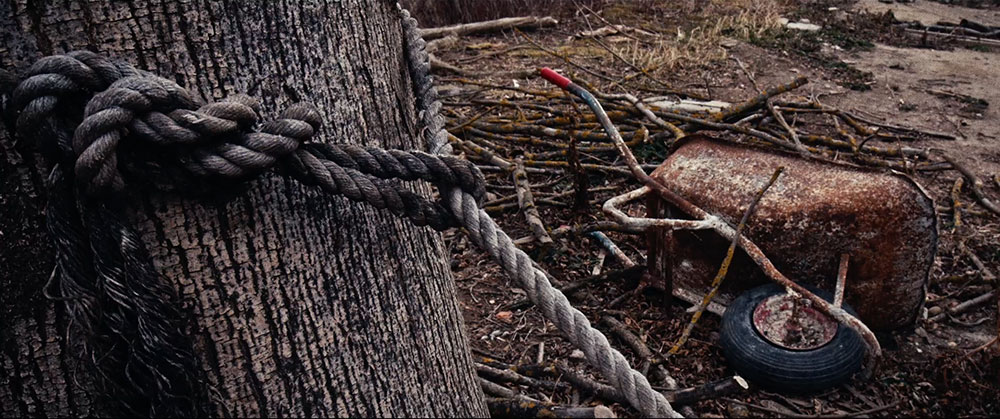
The deceptively straightforward synopsis reads:
South African enfant terrible filmmaker and artiste-cineaste Manus Oosthuizen meets with Rotten Tomatoes-approved indie film critic Babette Cruickshank in an Echo Park sound studio. With key members of Manus’s crew joining, they record an audio commentary track for his new elegiac feature documentary “Razzennest.” But the session goes down a different path. The ultimate elevation of arthouse horror, just not as you might expect.
Immediately, the film challenges your expectations as we get nothing more than an awkwardly hilarious audio commentary track over a series of seemingly irrelevant scenic shots.
The film within a film, Razzennest (loosely translated to rat’s nest), is the very definition of vainglorious arthouse pomposity. It’s the kind of film that, were it real, would be laborious to get through. It would be heralded by critics as a must-see masterpiece, rich in layered meaning and pathos. You’d watch it to seem cinematically literate, but you’d almost certainly (secretly) hate it.
Critic Babette Cruickshank (Sophie Kathleen Kozeluh) introduces the film with bubbly enthusiasm, but it quickly becomes clear she hasn’t really done her homework, a fact that the film’s cranky, self-absorbed director, Manus Oosthuizen’s (Michael Smulik) finds intolerable. While Babette tries to coast on industry buzzwords and hipster film references, the easily triggered Manus goes off on hysterical rants and tirades.
He’s especially enraged with her “stupid American” ignorance about the Thirty Years’ War, one of the longest and most destructive conflicts in European history, lasting from 1618 to 1648.
Interestingly, both the fake film Razennest from Manus and the real film from Johannes are inspired by the respective filmmakers’ obsession with the Thirty Years’ War.
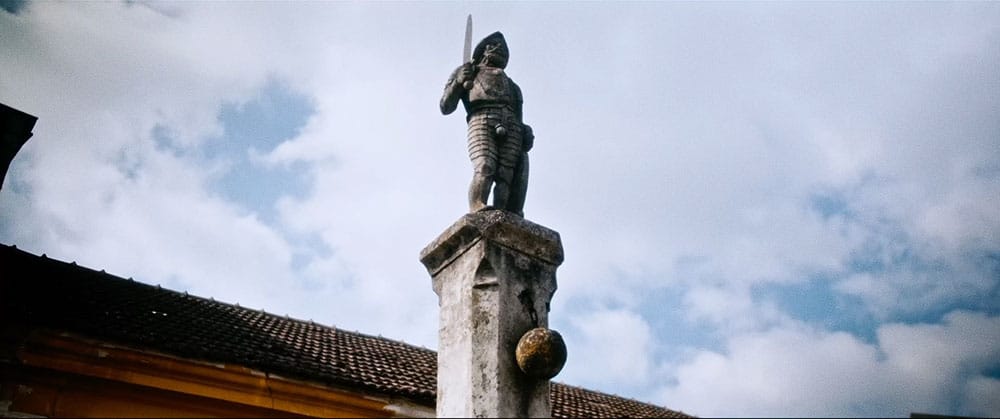
In the fake film, there’s no way you could derive such meaning were it not for the extensive commentary track being recorded as we watch.
But it’s through that commentary track that Johannes is able to cleverly entertain while also giving the audience a really powerful and in-depth history lesson.
In an interview with Grimoire of Horror, Johannes stated:
“Razzennest allowed me to realize my decades-old dream of making a film about the Thirty Years’ War and its endless atrocities without needing a budget of millions of dollars to depict the war’s bloody significance. I read a lot of papers about the conflict, and all incidents in the story are based on real-life descriptions of cruelty that really happened. I wanted to bring the specters of the past into the present and let them run havoc.”
In that same interview, Johannes reveals that his depiction of the arrogant Manus is also very much grounded in reality. He sometimes used exact quotes from directors and producers and put them into Manus’ maniacal outbursts.
This results in some of the wittiest, most uproarious, and devilishly satirical dialogue imaginable.
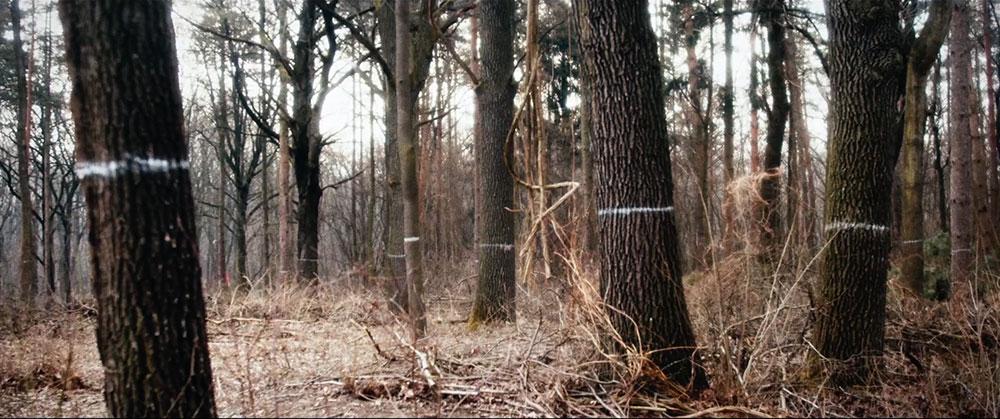
And, because the film plays out like an audio drama, heavily focused on the auditory experience over the visual one, the audience stays keenly focused on every carefully crafted word of dialogue for maximum impact.
I was struck by how much my podcast co-host would appreciate the satirical mockery of arthouse pretension that Razzennest absolutely nails. I’m an avid connoisseur of arthouse cinema, and he and I often argue about the inherent value of films whose appeal lies in the peeling back of layers and careful analysis of allegory and thematic undertones.
If you’re someone who, like my co-host, often finds those kinds of films dull, pompous, and hollow, you’re likely to appreciate the witty way Razzennest skewers filmmakers and critics who defend inaccessible work as elevated art you’re just too dumb to understand.
While Johnnes’ Masking Threshold was an experiment in auditory hallucinations, it combined that with an all-out visual assault. In contrast, Razzennest offers up little to nothing in regard to engaging visuals. And that’s entirely intentional. For this film, the auditory experience is everything. If that sounds boring, I promise it’s not by any stretch of the word.
For Razzennest, Johannes invites the viewer to use their imagination to fill in the gaps between what they are hearing and what is happening. And it makes for an oddly captivating experience.
The first part of the film is simply the recording of the behind-the-scenes audio commentary track. There’s no horror, only plenty of satirical humor. Though you can’t see any of the actors, the voice work is so excellent that it’s incredibly easy to recognize everyone speaking and form a mental picture of who they are and how they react to the chaos that eventually unfolds.
At a certain point, you’ll start thinking, “Is this all there is? Where can this possibly be going?” You may begin to worry that the clever premise is about to overstay its welcome.
And that’s where Johannes pulls the rug out from under you and flips this funny oddity on its head by introducing the horror — in a big way.
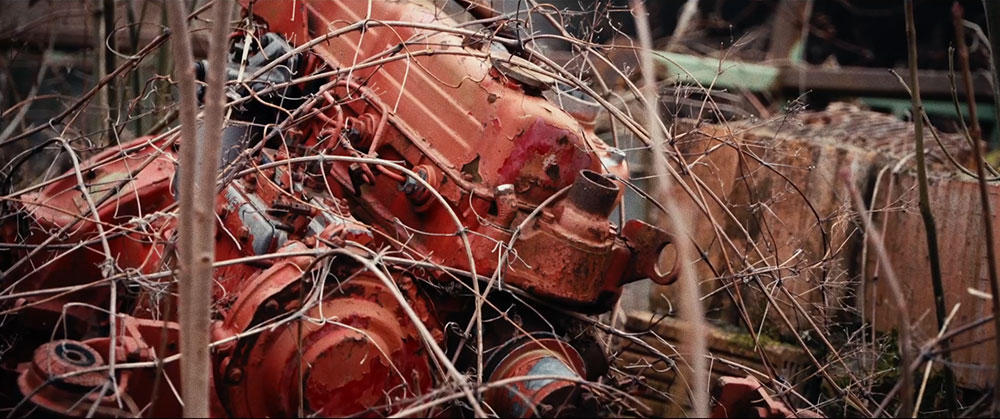
In the middle of the commentary, the film starts having an effect on the characters in the “real” world.
I don’t want to give too much away because this turn is deliciously unexpected and remarkably effective as the film devolves into all-out madness.
There are events suggested by the audio which invoke absolutely horrific and depraved images in the viewer’s mind. The fact that you don’t see it actually play out is a blessing for all but the sickest of horror fans, and having to conjure up your own mental images actually makes the scenarios more impactful.
It gets ridiculously sinister but maintains its darkly comedic tone as the horror ramps up.
Meanwhile, the images on the screen remain disconnected but strangely synchronized to the events unfolding offscreen. The tempo of the flashing images speeds up as the tension escalates. Suddenly, what was essentially a meandering slideshow feels eerily purposeful and increasingly haunting.
It’s disorienting but decidedly compelling.
Razzennest is a strange but seductive concoction.
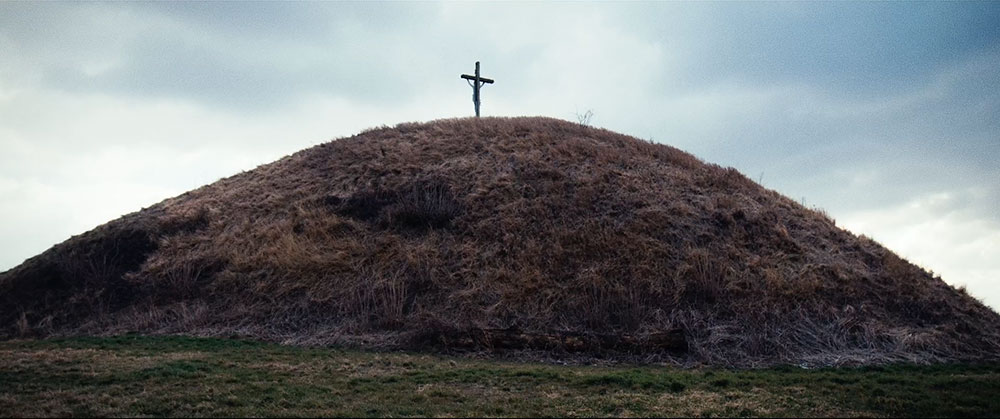
A brilliant meta-commentary on art and those who make it, it’s a satirical lampoon of the very kinds of films Johannes himself makes. And those who he mocks are the very same people who would flock to this kind of exceedingly odd, extremely off-the-beaten-path experimental film. There’s also a lot of “inside baseball” that cinephiles and “film snobs” will appreciate, even as they’re forced to recognize and embrace their own elitist tastes and criticisms.
But this isn’t just a satirical farce. Despite its unusual conventions, Razzennest is also a damn disturbing and frightening horror film. And it’s not just scary in that esoteric way arthouse films are often scary — frightening more because of the underlying horror it represents rather than a result of actual chills and thrills. No, this is scary in that very real, very present, “Holy shit!” way we horror fans crave.
Even without the benefit of terrifying imagery, Razzennest manages to crawl under your skin and keep you glued to the screen as you wonder, “What the hell is going to happen next?”
Like so many of my reviews, I find myself cautioning that this won’t be everyone. But for those willing to get lost in something inspiringly unconventional, there is so much to love and admire about this film.
At a minimum, it cements Johannes Grenzfurthner as an innovative, highly imaginative, and thought-provoking filmmaker with a bright future in the genre.


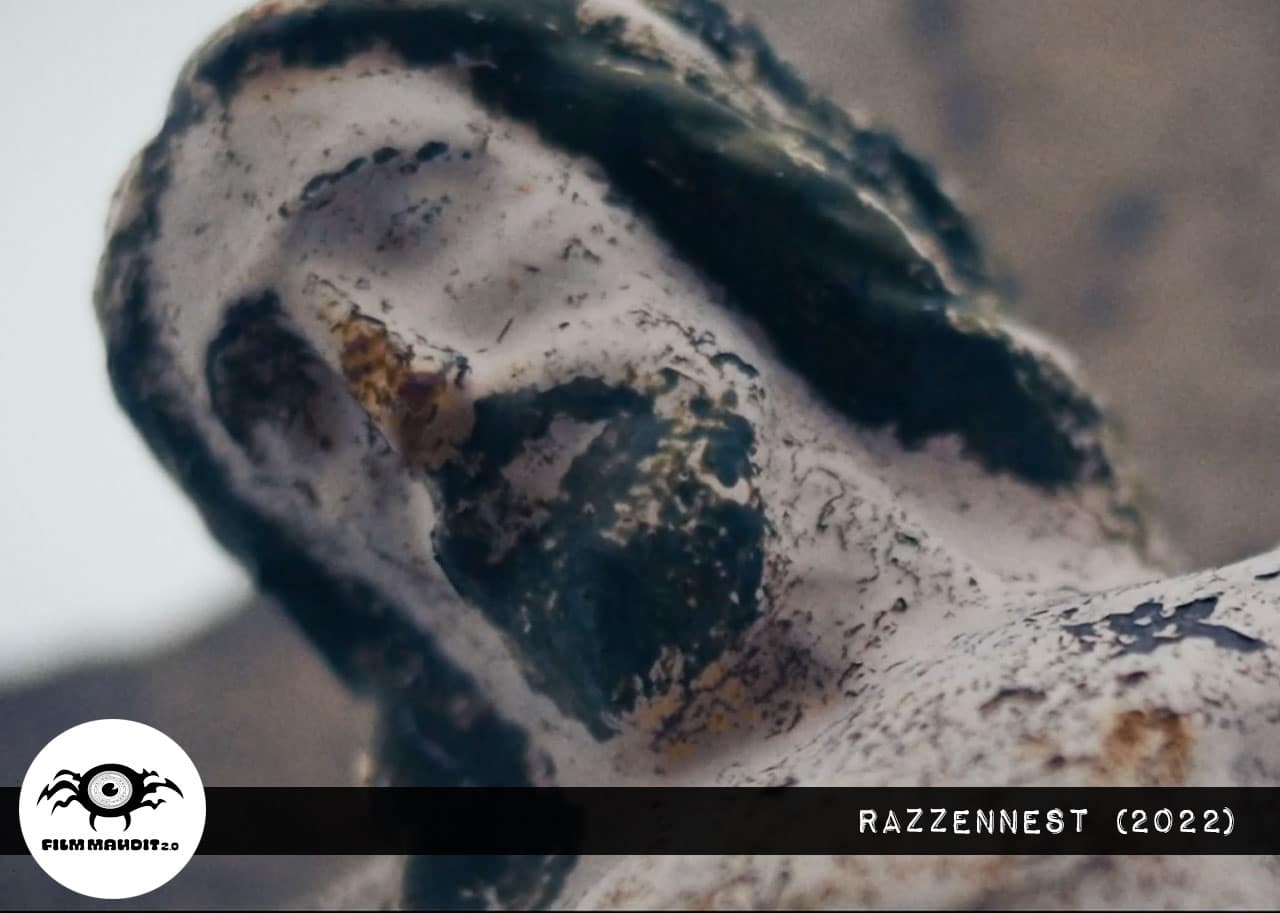
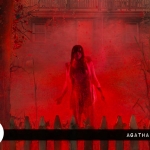


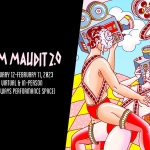


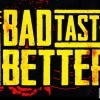
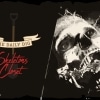



Follow Us!